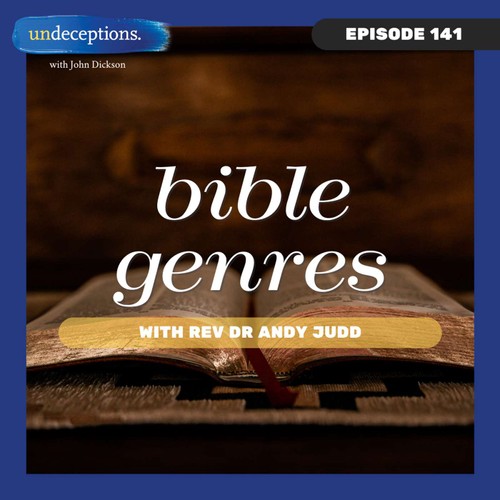
 Undeceptions with John Dickson
Undeceptions with John Dickson 141. Bible Genres
Dec 8, 2024
Andrew Judd, a biblical scholar and author, discusses the complexities of literary genres in the Bible. He explains how understanding these different genres, from poetry to historical narratives, is key for deeper comprehension. Judd cleverly connects modern genre theory with biblical interpretation, using examples such as the cautionary tales in Judges. He emphasizes that genres shape meaning, inviting listeners to appreciate scripture's richness and its relevance to contemporary moral questions, like the interpretation of slavery.
AI Snips
Chapters
Books
Transcript
Episode notes
Dylan Goes Electric
- In 1965, Bob Dylan, a folk artist, surprised fans by playing electric guitar at the Newport Folk Festival.
- This shift was met with intense disapproval from folk purists, highlighting the importance of genre.
Genre Matters
- Genre, the categorization of art, influences how we interpret and react to creative works.
- A change in genre can be seen as either a betrayal or a bold artistic move.
Genre as Convention
- Genres are conventions of communication used in specific situations, making them complex.
- Misinterpreting genre can lead to misunderstandings, like confusing sarcasm for sincerity.


